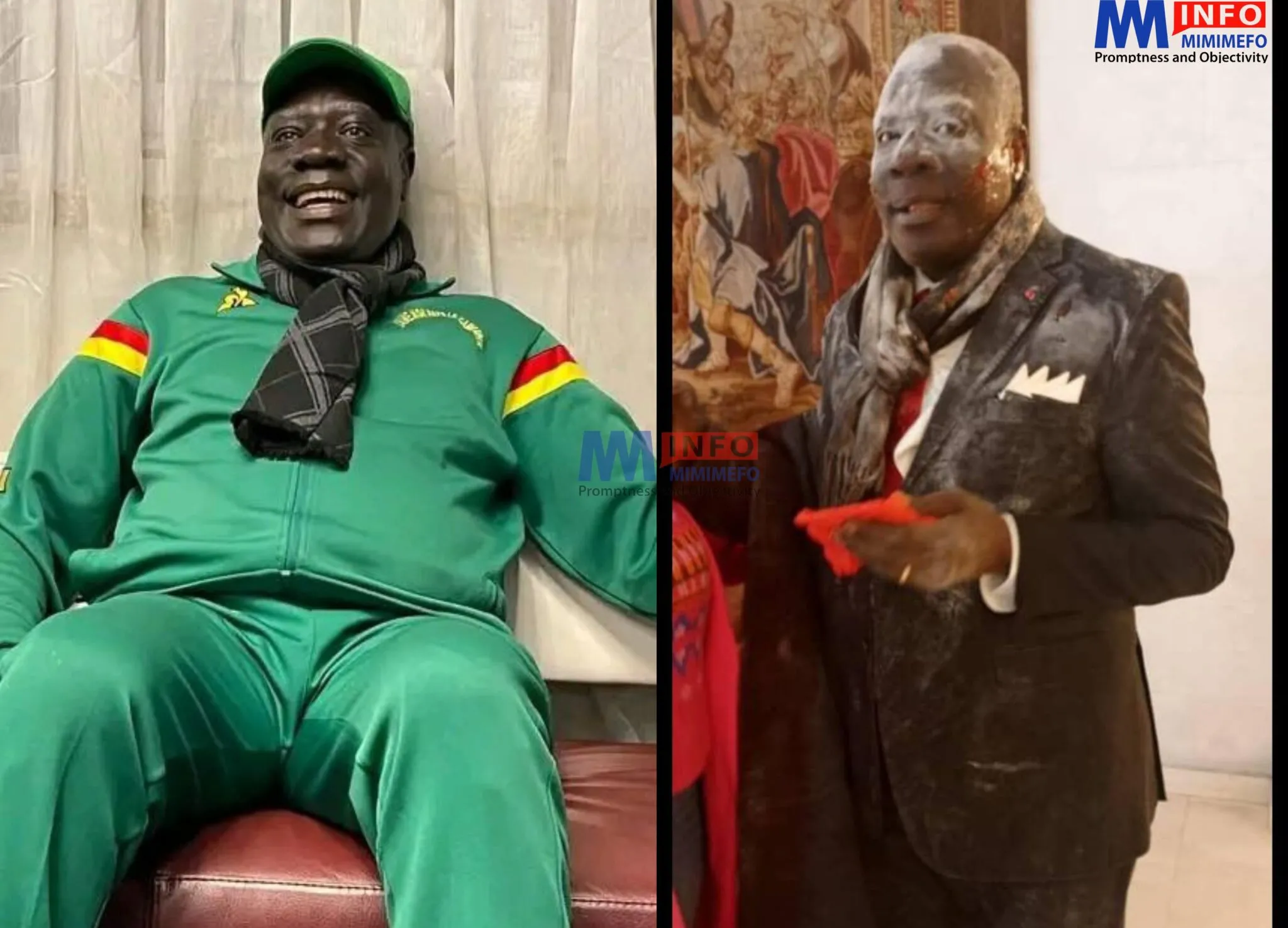The Cameroonian Minister of Youth Affairs and Civic Education, Mounouna Foutsou, has stated that despite recent confrontations, anti-regime activists remain Cameroonians.
“No matter what happened, they remain our children, the children of Cameroon,” he said, addressing a standoff in Europe involving members of the Cameroonian diaspora under the Brigade Anti-Sardinard (BAS) movement.
He made this statement on Monday, March 3, upon his arrival at the Nsimalen International Airport in Yaoundé. The minister reported that he was received at the airport by some of his collaborators and family members.
Minister Allegedly Assaulted in Europe
Minister Foutsou had traveled to Europe last week to preside over the closing activities of the youth month. What started as a routine working trip escalated into a confrontation.
Members of the BAS movement disrupted his meetings. This organisation opposes President Paul Biya’s regime, which has been in power for over four decades. BAS activists often target Cameroonian government officials travelling to Europe.
During his visit to Brussels, Belgium, BAS members reportedly stormed the venue where the minister was holding a meeting and physically assaulted some officials. Images circulating online show individuals with facial injuries and bloodstains. Another widely shared image, believed to be of the minister, shows a man covered in what appears to be baking powder.
Despite the violent encounter, Minister Foutsou has safely returned to Cameroon. He emphasized his continued respect for the Cameroonian diaspora, affirming that President Biya has entrusted him with an important mission.
BAS Resurfaces
The Brigade Anti-Sardinard was a prominent force in Europe five years ago when it was created. The movement has staged several protests, including an attack on President Paul Biya at the Swiss Intercontinental Hotel in Geneva.
BAS remains active in the United Kingdom, France, Belgium, and Switzerland, advocating against what they perceive as the mismanagement of Cameroon by the Biya administration.
After a period of relative inactivity, the group has recently resurfaced. At its peak, it not only targeted government officials but also confronted Cameroonian diaspora members who supported the ruling Cameroon People’s Democratic Movement (CPDM).



